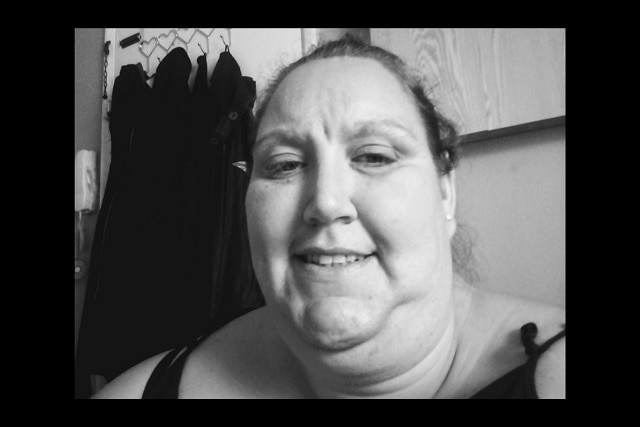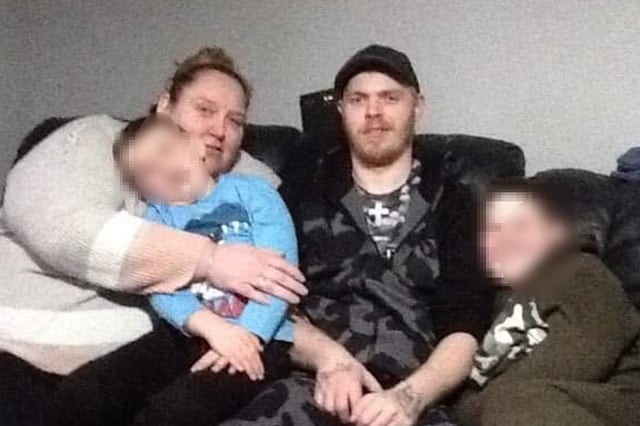
The family of a mum-of-four who died just a month after giving birth have told an inquest she felt “tormented” by hospital staff comments made about her weight.
Shelley Harlow’s mum, Wendy Pearson, said her daughter had been “terrified” to return to the town’s QEQM Hospital to give birth to her fourth child on April 22 last year.
Throughout her pregnancy, the 38-year-old from Margate was regarded as high-risk due to her 38st 5lbs weight and a serious blood clot she suffered after a miscarriage a year previously.
Following the miscarriage in 2021, staff at the QEQM mistook part of Shelley’s placenta for the baby – and the deceased foetus was later found inside her trousers at home.
Sepsis
When pregnant again in 2022, Shelley was prescribed a preventative anti-coagulant called heparin that was intended to prevent her from experiencing another blood clot. However, due to miscommunication from the QEQM, Shelley wrongly stopped taking this at home in the days before her death.
On May 25 of that year, after returning home from spending several weeks in hospital after she contracted sepsis stemming from the wound left by the caesarean, Shelley died from a blood clot in her lungs.
‘Terrified’
Her mum Wendy told the inquest in Maidstone last Monday how Shelley felt “absolutely terrified” to return to the QEQM for her c-section “because of how she was treated when she had her miscarriage in 2021”.
She was also said to have been upset by derogatory comments staff are alleged to have made.
Wendy said: “I feel that Shelley was fat-shamed a lot. She told me that on the day she went into hospital she was asked ‘what are you doing here?’.
“She told them she was coming in for a c-section and a member of staff told her that they would have to cancel a lot of other c-sections now because of how long hers would take.”
Wendy continued: “Shelley kept telling me they hadn’t made a plan and she was very frightened of having the c-section.
“I think being told that she’d have to have a special room and a big bed because of her weight made her feel even more frightened.”
Wendy said Shelley had gone to Slimming World, despite feeling “very embarrassed”, and lost almost a stone.
“I want to make people aware that being overweight is like an addiction – it’s the same as cigarettes or drinking,” Wendy added.
“There’s no use telling people to go on a diet if they don’t work. I think people need to realise that.”
Greater risk
Venous thromboembolism, the condition that caused Shelley’s death, is one of the main causes of women dying while pregnant and in the few weeks after their baby is born.
Shelley was at even greater risk due to her weight and her history of the condition.
Following the birth of her fourth son in April 2022, she contracted sepsis in the wound from the c-section.
This required her to spend several weeks in hospital without her newborn baby and ultimately required five trips to surgery.
Shelley had to stop taking the heparin anticoagulant each time she was taken to the operating theatre, in order to prevent excessive blood loss, meaning she missed many vital doses.
On May 16, 2022, Shelley was discharged from QEQM for the final time – but due to a clerical error, heparin was not included in the list of medications she was prescribed, the inquest heard.
This mistake caused confusion as to whether Shelley needed to take the injections at home and even resulted in her GP telling her she may not need to continue with the drug.
The GP did advise her to contact her consultant at the hospital to check. Wendy told the coroner’s court her daughter called the QEQM but received no reply.
‘Care – high standard’
Sarah Clarke, area coroner for north east Kent, told the inquest the miscarriage ordeal had left Shelley “very scared” when she became pregnant again – and her c-section “was complex for various reasons.”
She said: “The care she was provided while in hospital was of a high standard. She had a total of five surgeries and her heparin was stopped several times. The time when things could have been different was at her discharge.
“I am sure that all the clinicians have reflected on their involvement in Shelley’s care.
“We can’t blame Shelley for wanting to go home and be with her baby. If the information on her discharge form had been clear she may have continued taking the heparin.
“But I must say this was not causative, as even with the heparin she was still at risk and she did not show symptoms before the night of her death.”
In the early hours of May 25, 2022, Shelley’s partner Kieron Heathcote, the father of her newborn son, called 999 after she stopped breathing and was instructed on how to perform CPR.
He continued trying to resuscitate her until the arrival of paramedics, who used a defibrillator.
Despite the air ambulance also arriving to assist and another hour of attempted intervention, Shelley was tragically declared dead at 2.26am.

The miscarriage Shelley suffered in 2021 had almost led to her death as she haemorrhaged 2.8 litres of blood in an “emotionally and mentally damaging” ordeal.
This incident also led to a complaint to QEQM as, due to a horrifying mistake, Wendy discovered her daughter’s tiny deceased foetus inside her trousers.
“She threw my clothes, screwed up, on the floor. They put the ‘baby’ in the crib and let us see it but I was still bleeding badly.
“My mum had taken the bag with my trousers home and took them out to wash the blood off. Because there was so much she put them in the bath and when she looked there was a little baby in the water.”
‘Heartfelt sympathies’
In a statement, East Kent Hospitals Trust chief nursing officer Jane Dickson said: “The death of Shelley following the birth of her baby is devastating for her family and we would like to extend our heartfelt sympathies to her family.
“The circumstances leading to Shelley’s death were immediately and thoroughly investigated. An independent safety investigation was conducted by the Healthcare Safety Investigation Branch (HSIB).
“We have implemented all the recommendations made in the report and the findings of these investigations were shared with Shelley’s family and HM Coroner.
“We now identify at-risk women earlier on during their pregnancy to offer them tailored advice and planning about conditions which may affect their labour and delivery, as well as ensuring digital information is shared consistently with our partner organisations so that all healthcare professions have a full picture of a women’s health.”
Coroner
The coroner recorded a conclusion of natural causes and gave Shelley’s cause of death as a massive pulmonary thromboembolism, with the supporting factors being her recent third-trimester delivery, caesarean section, post-operative sepsis and morbid obesity.
Ms Clarke added: “I struggled with the decision on whether to conclude natural causes or to provide a narrative conclusion in this case.
“Her mother described how Shelley was tormented by comments about her weight and how she felt fat-shamed.
“All that is left is to extend my condolences to her mum, Wendy, and all of Shelley’s family.”

